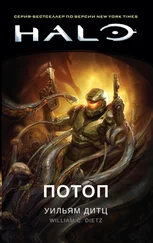At least a thousand people were gathered around the platform, with more arriving every second. As they clapped, and Sloan accepted the mike, he struggled to organize his thoughts. “My fellow Americans,” Sloan began, as the applause died away, “a swarm of meteorites struck Earth, killed millions of people, and brought our great country to its knees.
“But America has been dealt such blows before and never kneels for long. I am passing through Lebanon on my way to Indianapolis, where a new Continental Congress is going to convene. Once that occurs, we will stand, and not just stand, but stand together.
“Meanwhile, the clouds of war have begun to gather. I have been in the South, I have heard the propaganda, and I have seen the military convoys that are rolling north. More than that, I’ve seen the defense towers that are being built to keep us from crossing the New Mason-Dixon Line. Why? Oil, that’s why. Those who control the South have taken control of the oil reserves that rightfully belong to all Americans.”
That produced a chorus of boos, and Sloan nodded. “As the ex–Secretary of Energy, I can tell you that there are approximately 700 million barrels of oil stored in those reserves. That’s enough fuel to run our country for more than two months at pre–May Day levels. Or even longer, assuming we use it wisely. What would that mean? It would mean a jump start while we get shale-oil and natural-gas production back up and running… And that, along with wind power, can put us back on the path to prosperity in spite of the persistent bad weather. But there’s even more to fight for,” Sloan added. “The so-called New Confederacy stole part of our country… And we want it back! ”
The resulting roar of approval echoed between the surrounding buildings. Sloan raised both hands in an effort to quiet the crowd. “I hear you… And thank you for your support. But know this… What’s coming is nothing less than a second civil war. Brother will fight brother… Sister will fight sister… And rivers of tears will flow.
“But after the last shot has been fired, and the last body has been buried, our country will rise again. And I want you to be there, standing at my side, as we bear witness to that glorious day. Thank you! And God bless America!”
There was an explosion of applause, which went on and on. Besom had to shout in order to be heard. “Where the hell did that come from?”
Sloan waved to the crowd. “Was it okay?”
“ Okay? It was great! I want you to give the same speech in the next town, and the one after that. Word will spread. There is a president—and he has a plan. Now get down there, shake hands, and kiss babies.”
It took hours to get out of town, and Sloan was exhausted by then. He remembered the real president, the one who had died in Washington, D.C., and how good he’d been at pressing the flesh. “The people’s president.” That’s what sympathetic members of the press called him, and Sloan thought it was true.
Even so, the president had never been consumed by a crowd the way Sloan had been. It was exhilarating, and being the center of attention felt good. Too good, Sloan admonished himself. Be careful, or you’ll turn into an egotistical jerk.
The initial thrill was short-lived. After five minutes or so, the press of the crowd began to feel oppressive. And Sloan was extremely vulnerable. The man he thought of as the real president had staff, police officers, and the Secret Service to protect him. So there was a natural desire to wall himself off. But the voice was there to offer contradictory advice. These are early days, and the citizens of the United States need a leader they can reach out and touch. Be that person, and word will spread. You need their approval. More than that, you need their love. Because in order to do what needs to be done, thousands, no, tens of thousands of your followers will die, and that means the bond with them must be strong.
It was a sobering thought… And as the group marched northeast, feelings of self-doubt began to pull Sloan down. There was so much to do. So much to be . Was he up to it? Perhaps someone else would do a better job. That possibility followed him into the town of Rolla, where it haunted his dreams.
The next day began with breakfast at a local restaurant followed by another speech. There were hecklers this time. People who, judging from the Confederate flags they carried, were aligned with the South. The patriots in the crowd drove them away. It was a sobering moment, though, and a potent reminder that the North was far from homogenous.
The group had limited funds. But that didn’t present much of a problem because there were plenty of people who wanted to buy them dinner, put them up for the night, or both. That was nice but exhausting as well. Sloan said as much to Besom, who was quick to push back. “Some of these people are wealthy, Mr. President. Even after the disaster. And you’re going to need donors.”
Sloan frowned. “Donors? Why?”
Besom spoke as if to a child. “The president had served three years when he was killed and replaced by the vice president. That means you’ll have to start campaigning in a few months. By that time, at least two or three people from your party will come forward to oppose you, never mind the New Whigs, who have a pro-Confederate bent. So relationships like the ones you’re developing now will become critical later on.”
Sloan stared at him. “What makes you think that I’ll run?”
“The war will still be under way a year from now,” Besom predicted. “And you won’t want to leave office in the middle of it.”
Sloan hadn’t thought of that—and realized that he should have. He forced a grin. “Point taken. I will be nice to the wealthy donors.”
Dinner was nearly over when a man burst into the restaurant. He was disheveled, as if he’d traveled a long way, and his eyes were darting about. “I’m looking for the president,” he said loudly. “I was told that I could find him here.”
“He’s over there,” a waiter said, and pointed at Sloan.
The man nodded and made his way over. “Are you the president?” he demanded, as he stared at Sloan.
Jenkins stood before Sloan could answer and stepped in between them. “Are you armed?”
The man nodded. “Place your hands on your head,” Jenkins ordered, “and keep them there. I’m going to pat you down. Or, if you don’t like that, you can leave.”
“That’s right,” McKinney said as he held his Glock barrel up.
“I understand,” the man said, and placed his hands on his head.
Jenkins conducted a thorough search. In the process he turned up a .9mm Beretta, a wicked-looking knife, and a derringer. All of which were placed on the table. “He’s clean,” Jenkins declared as he stepped back and out of the way.
“Thank you,” Sloan said. Then, having turned his eyes to the man in front of him, “I’m President Sloan. And you are?”
“Captain Frederick Yancy, of the 213th Ordnance Company, Ohio National Guard. The Secretary of Defense sent me to find you. I have an important message.”
Sloan was mystified. “ Secretary of Defense? I don’t have one.”
That was when Marsha Roston spoke up. “Would that be Secretary of Defense Garrison ?”
“Yes, ma’am,” Yancy replied. “And his message is urgent.”
Sloan wasn’t sure how to react. Garrison had agreed to carry messages to patriot leaders farther east. Now it appeared that the gentleman farmer and part-time stamp collector had named himself Secretary of Defense! “Please,” Sloan said, “have a seat. Would you like something to eat or drink?”
Читать дальше
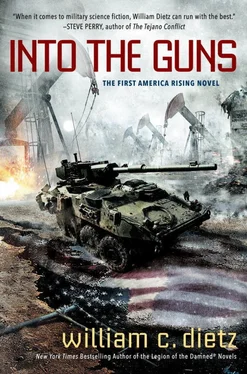
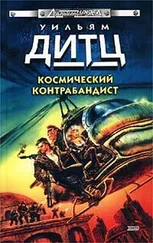
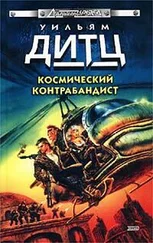
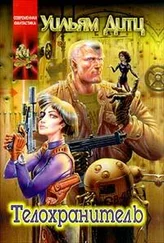
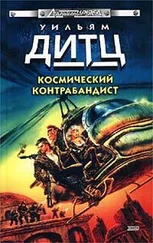
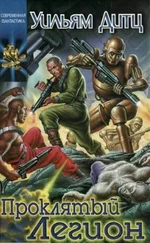
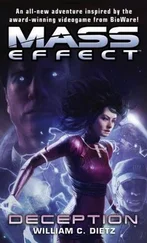

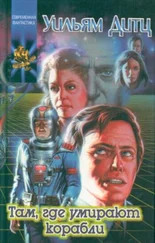
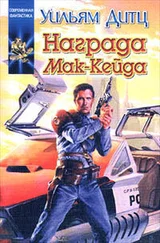
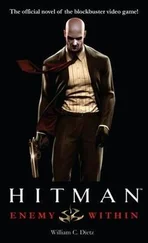
![Уильям Дитц - Избранные произведения в одном томе [Компиляция]](/books/389750/uilyam-ditc-izbrannye-proizvedeniya-v-odnom-tome-k-thumb.webp)
